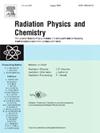Effects of gamma and electron-beam irradiations on the stability of free radicals, bioactive compounds and microbial characteristics of turmeric powder
IF 2.8
3区 物理与天体物理
Q3 CHEMISTRY, PHYSICAL
引用次数: 0
Abstract
Turmeric is a functional ingredient commonly used in food, pharmaceutical, and cosmetic products due to its health benefits and bioactivity, including anti-inflammatory, antioxidant, and anticancer benefits. Irradiation is a common technique used to decontaminate microorganisms and extend the shelf life of spices. However, there are scientific debates over the use of irradiation in food products. This study aimed to assess the effects of ionizing radiation, including gamma rays and electron beams, on bioactive compounds and microbial characteristics of turmeric powder. Technically, high-performance liquid chromatography with UV–Vis detection was used to assess bioactive compounds. Another aim of the present study was to determine free radicals in irradiated and non-irradiated samples within one month of storage using electron paramagnetic resonance (EPR). Results showed that gamma and electron-beam irradiations could decrease microbial contamination of turmeric by approximately 5 and 6 log cfu/g, respectively. Contents of bioactive compounds increased in irradiated samples and curcumin contents in gamma and electron-beam irradiated samples were 232–248 and 215–266 mg/g dry weight (dw), respectively. Furthermore, the study detected that free radicals increased in all irradiated samples immediately after irradiation but decreased over time. Decrease in EPR signals was faster in gamma-irradiated samples during storage. Numbers of free radicals induced by gamma and electron-beam irradiations were 6.59–4.70, 2.69–1.60, 1.61–1.34, and 0.99–1.05 on days 0, 7, 14, and 21, respectively. After 21 days of storage, the numbers of free radicals in all non-irradiated and irradiated samples were similar. Therefore, free radicals induced by irradiations were degraded during storage and eliminated after 21 days.
伽马射线和电子束辐照对姜黄粉中自由基稳定性、生物活性化合物和微生物特性的影响
姜黄是一种功能性成分,通常用于食品、药品和化妆品,因为它具有保健功效和生物活性,包括消炎、抗氧化和抗癌功效。辐照是一种常用的技术,用于消除微生物污染和延长香料的保质期。然而,在食品中使用辐照技术还存在科学争议。本研究旨在评估电离辐射(包括伽马射线和电子束)对姜黄粉中生物活性化合物和微生物特性的影响。在技术上,采用了高效液相色谱法和紫外-可见检测法来评估生物活性化合物。本研究的另一个目的是利用电子顺磁共振(EPR)测定辐照和非辐照样品在储存一个月内的自由基含量。结果表明,伽马射线和电子束辐照可使姜黄的微生物污染分别减少约 5 和 6 log cfu/g。辐照样品中生物活性化合物的含量有所增加,伽马射线和电子束辐照样品中姜黄素的含量分别为 232-248 毫克/克干重(dw)和 215-266 毫克/克干重(dw)。此外,研究还发现,所有辐照过的样品在辐照后自由基都会立即增加,但随着时间的推移会逐渐减少。在贮藏过程中,伽马射线辐照样品的 EPR 信号下降得更快。伽马射线和电子束辐照诱导的自由基数量在第 0、7、14 和 21 天分别为 6.59-4.70、2.69-1.60、1.61-1.34 和 0.99-1.05。储存 21 天后,所有未经过辐照和经过辐照的样品中的自由基数量相似。因此,辐照诱导的自由基在储存过程中被降解,并在 21 天后消除。
本文章由计算机程序翻译,如有差异,请以英文原文为准。
求助全文
约1分钟内获得全文
求助全文
来源期刊

Radiation Physics and Chemistry
化学-核科学技术
CiteScore
5.60
自引率
17.20%
发文量
574
审稿时长
12 weeks
期刊介绍:
Radiation Physics and Chemistry is a multidisciplinary journal that provides a medium for publication of substantial and original papers, reviews, and short communications which focus on research and developments involving ionizing radiation in radiation physics, radiation chemistry and radiation processing.
The journal aims to publish papers with significance to an international audience, containing substantial novelty and scientific impact. The Editors reserve the rights to reject, with or without external review, papers that do not meet these criteria. This could include papers that are very similar to previous publications, only with changed target substrates, employed materials, analyzed sites and experimental methods, report results without presenting new insights and/or hypothesis testing, or do not focus on the radiation effects.
 求助内容:
求助内容: 应助结果提醒方式:
应助结果提醒方式:


